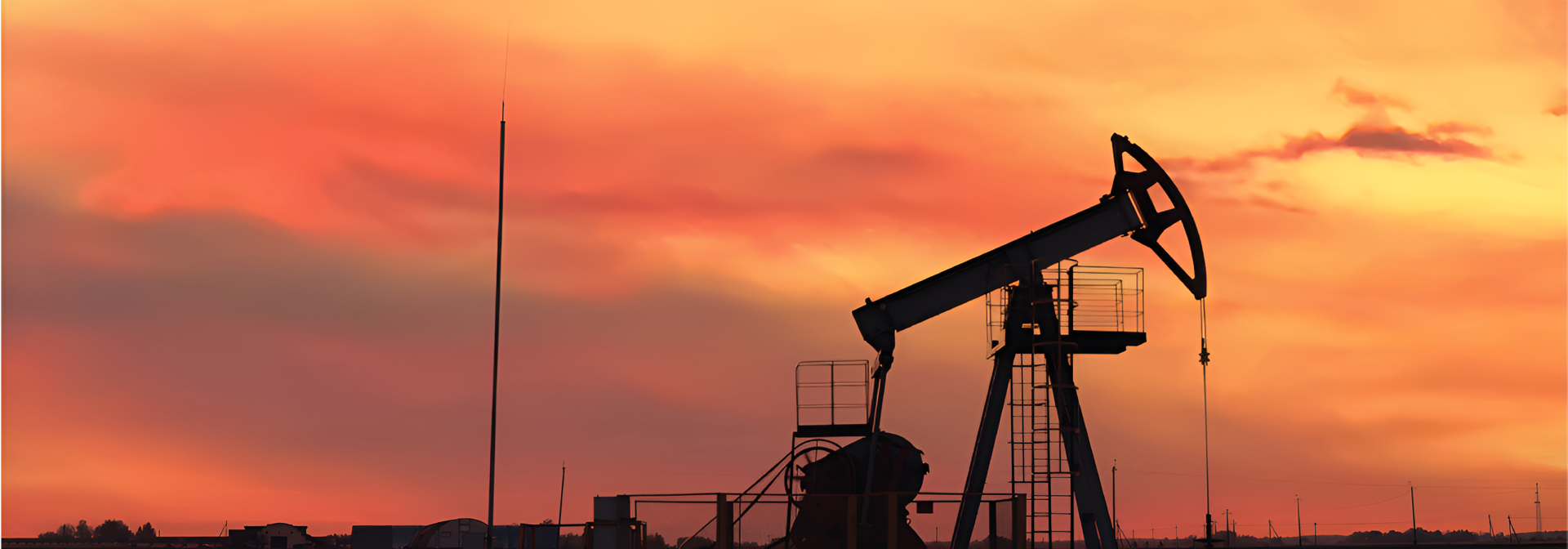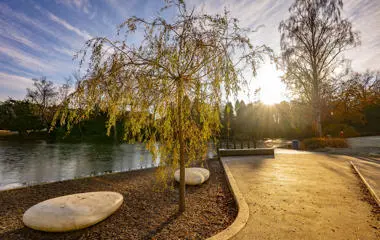Key information
- Funding
- Self-funded
- School
- Energy, Geoscience, Infrastructure and Society
- Location
- Edinburgh
- Delivery type
- Full-time, Part-time
- Start date
- September
The Pore-scale Modelling group uses a wide range of innovative modelling techniques to understand the fundamental recovery mechanisms governing multiphase displacements in subsurface reservoirs. Techniques range from advanced pore-scale modelling approaches – including pore reconstruction protocols and the integration of multi-scale pore systems – through core-scale simulation of a variety of SCAL measurements. The modelling work is regularly informed by related experimental activity from several themes including micromodel experiments and coreflood data.
We conduct research to develop pore-scale models that are widely considered to be the most advanced of their type, particularly for the physics of wetting films and layers (which assist in the drainage of oil) and unsteady-state ganglion dynamics. Depressurisation pore-scale physics has been extensively studied and 3D network models have been developed for analysing pressure depletion in light and heavy oil systems, the first to explicitly couple non-equilibrium PVT behaviour, gravitational migration of discontinuous gas structures and viscous forces.
Our research also explores the application of pore-scale models to a wide range of enhanced oil recovery techniques, including: low salinity waterflooding, surfactant injection, and polymer flooding. Many of these modelling approaches have been informed by a powerful, rapid reconstruction methodology (PAM: Pore Architecture Modelling), that facilitates the creation of multi-scale 3-D in silico porous media from a range of 2-D cross-sectional data. Our numSCAL software allows reconstructed media to be used as numerical rock surrogates for a variety of EOR studies.
In addition, a framework for the classification of digital rocks by machine learning is currently being constructed to produce reliable and robust predictions of micro-to-macro relationships – it is underpinned by recent advances in support vector machine learning. Additionally, a number of new, highly efficient lattice Boltzmann simulation techniques have been developed at the Institute of GeoEnergy Engineering for examining flow through low-porosity rocks and multi-scale interconnected pore systems.
Finally, we continue our innovative research in applying network modelling techniques to examine flow in biological systems (flow in vascular beds, tumours, bone implants, and retinae) and have highlighted a number of important new targets for therapeutic intervention.
Entry requirements
Candidate criteria
Please contact the institute to discuss.
Funding information
| Status | Full Time | Part Time |
|---|---|---|
| Scotland | £5,151 | £2,575.50 |
| England / Wales / N Ireland | £5,151 | £2,575.50 |
| International | £26,604 | £13,302 |
- Status: Your residency status is usually defined as the country where you have been ordinarily resident for the three years before the start of your course.
- International: 'International' includes applicants from European Union countries who do not hold Pre-Settled or Settled status in UK. (This does not include students from the Republic of Ireland - see above).
Additional information
Industrial sponsorship
Many of our past students have gained funding from industry sources, both those companies involved in oil exploration and production in their home countries or larger international companies that offer scholarship programs. For example:
- Nigerian Petroleum Technology Development Fund (PTDF)
- Bolahak, Kazakhstan
- Commonwealth Scholarships
- Chevening scholarships
- BP
- Chevron
- Shell
- ExxonMobil
There are also a number of Industrial sponsorships available every year to UK and EU students. All eligible applicants (generally EU/UK students) automatically have their CVs or applications sent to participating petroleum companies, who offer a limited number of sponsorships each year to our students, across all three courses. The number of sponsorships offered will vary depending on the companies’ needs and situations, and the quality of the student applicants and are given our after an interview event that takes place during the summer before the course starts.
We offer a number of competitive funded scholarships for research degrees. Full or partial support may be available for well-qualified candidates from UK research councils, research pools, charities or industry.
View our full range of scholarships.
Why Heriot-Watt
We're the top university in Scotland for graduate outcomes which means that more of our graduates are employed or in postgraduate education than any other institution in the country and we ranked 5th in the UK.
We're also rated number one in the UK for CEO or MD roles, meaning more of our graduates go on to become CEOs or MDs than any other university in the whole of the UK. On top of that, we have beautiful campuses, across the globe, so you'll get a truly international education. Our Edinburgh Campus is home to Oriam, Scotland's National Sports Performance Centre combined with plenty of wellbeing resources, prioritising fitness and mental health for all students. Our Global Research Institutes look at solving real world issues such as climate change and saving our oceans as well as working on the next medical technological breakthrough and the future of AI and robots.


